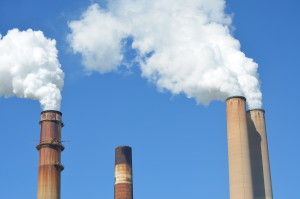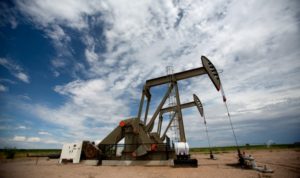
EPA announces power plant emissions limits, Europe proposes climate change rules, and more…
IN THE NEWS
- The U.S. Environmental Protection Agency (EPA) announced it will begin reinstating a rule that limits “mercury, acid gases, and other harmful pollutants” from power plants. Under the Trump Administration, EPA had revoked the rule, but the current EPA stated that revoking the rule “improperly ignored or undervalued vital health benefits.” EPA claimed that human health concerns and environmental protection outweighed the financial costs of limiting power plant mercury emissions and other pollutants. Attorney at Environmental Defense Fund, Michael Panfil, reportedly stated that although this rule provides necessary protections, it should be strengthened because power plants still “release significant amounts of mercury pollution and put American families at risk.”
- The Commission of the European Union proposed a rule that would review how nuclear and gas energy activities comply with the EU’s climate objectives. The rule would create “technical screening criteria” that assess whether nuclear or gas emissions threaten climate goals. Moreover, the rule would require the natural gas and nuclear sectors to make specific disclosures of their operational practices and other corporate information. EU Financial Services Chief Mairead McGuinness reportedly stated that the rule could shape “how gas and nuclear could make a contribution in the difficult transition to climate neutrality.”
- A federal judge blocked a federal government transfer of offshore oil and gas drilling leases in the Gulf of Mexico. Although President Joseph R. Biden paused all new oil and gas lease sales when he took office, a successful lawsuit brought by Republican state attorneys general forced the President to move forward with the sale that the previous Administration scheduled. Environmental groups challenged the sale, arguing that the Biden Administration could have blocked the sale if it had found that environmental costs would be too high. In a victory for the environmental groups, the court held that the Biden Administration must complete a new environmental analysis that considers future greenhouse gas emissions that would result from subsequent oil production should it decide to complete the transfer.
- The U.S. Department of Agriculture (USDA) announced a partnership with the Port of Oakland to mitigate port congestion that has contributed to shipping delays around the country. A lack of empty shipping containers has contributed to the congestion and under the agreement, USDA will help fund the construction of a 25-acre site for preparing and loading empty containers. This site will provide agricultural companies in particular with easier access to containers to keep their goods moving.
- The U.S. Department of Homeland Security (DHS) and the U.S. Department of Labor increased the number of noncitizens who may receive visas in 2022 by 20,000. The visas apply to noncitizen, nonagricultural workers who will work for “businesses that are suffering irreparable harm or will suffer impending irreparable harm.” Moreover, DHS authorized noncitizens currently within U.S. borders to begin working immediately for needy businesses upon filing a separate petition. The visa increase seeks to address current labor shortages in the United States. DHS and the Labor Department claim the added visas will help “address the needs of our economy.”
- The General Counsel of the National Labor Relations Board (NLRB) encouraged the agency to take action to stop employers from threatening or coercing employees engaged in union organizing campaigns. To prevent such union-busting efforts, the NLRB could seek injunctions—court orders that would require employers to stop engaging in unfair labor practices while they litigate their cases. Swift injunctive relief would “protect worker rights and deter statutory violations” soon after employers initiate anti-union practices, according to the General Counsel.
- The Biden Administration and the U.S. Department of Justice announced new initiatives that the Justice Department will take to combat gun violence and crime in the United States. The new initiatives include measures to reduce the amount of “ghost guns”—privately made firearms that lack serial numbers—and prioritize federal prosecutions for unlawful firearms trafficking. In its press release about the plan, the White House stated that the increase of U.S. gun crimes “requires an ambitious, evidence-based response that uses every tool” at the Administration’s disposal.
- Grindr—a gay dating app headquartered in the United States—removed itself from Apple’s app store due to concerns about the app violating recently enacted Chinese data protection laws. China’s new laws require the government to approve the transfer of any customer data before it is transferred across China’s borders. The removal of the app followed days after the Cyberspace Administration of China allegedly promised to remove online content that it finds to be inappropriate, such as pornography, and to punish those who break the law. A spokesperson for Grindr reportedly stated that the company’s decision to remove the app from China’s app stores “had been in the process for months” and was the result of a “changing regulatory environment.”
- The U.S. Department of Housing and Urban Development (HUD) made available over $2 billion in federal funds for community grants to help with climate change mitigation and disaster recovery. HUD, recognizing that “low income residents and people of color” tend to be more severely impacted by climate disasters, stated that its program requires grantees to distribute disaster funds equitably across communities and would ensure that resilience measures will be inclusive. HUD Secretary Marcia L. Fudge commented that the program “ensures that climate justice and racial equity remain central” to the department’s work as the United States continuously faces climate disasters.
WHAT WE’RE READING THIS WEEK
- In an article in the Harvard Law Review, Ji Seon Song of Stanford Law School argued that emergency rooms, which play an important safety-net role for vulnerable people, can act as extensions of the carceral state. Courts grant police open access to emergency rooms, allowing officers to search patients and their belongings and elicit patient information from medical providers. Song explained that, even if medical conditions prevent patients from leaving their hospital bed, police can question them without triggering the constitutional requirements of formal police custody. At times, medical professionals contribute to the criminalization of emergency rooms, participating in cavity searches and blood draws, according to Song. She concluded that “any reexamination of policing must include the presence of police in medical settings.”
- In a recent article in the Environmental Law Reporter, Peter H. Lehner, attorney at Earthjustice, and Nathan Rosenberg, visiting scholar at Harvard Law School, discussed how climate change and agriculture negatively impact each other. Lehner and Rosenberg explained that the agriculture industry has already greatly suffered from extreme climate events such as heat waves, flood, droughts, and hurricanes. Lehner and Rosenberg also outlined how agriculture has contributed significantly to climate change, largely through industrial animal production. The authors argued that governments should implement climate-friendly policies that will make agriculture more resilient to climate disasters and help remove carbon dioxide from the atmosphere, such as improving soil quality. To achieve these goals, Lehner and Rosenberg suggested that policies could aim to increase the amount of cover crops—plants that prevent soil erosion—on farms and promote the use of no-till farming practices that similarly do not disturb soil.
- In a working paper, Christian Sundquist, law professor at the University of Pittsburgh, argued that biosurveillance technology used in response to the COVID-19 pandemic, such as contact-tracing apps, can worsen racial and immigrant discrimination. Sundquist noted that the COVID-19 pandemic has intensified surveillance of minorities because law enforcement agencies—not public health authorities—are tasked with enforcing COVID-19 regulations, and current privacy laws are ill-equipped to regulate new surveillance technology. Sundquist argued that a new volume of privacy laws should expand protections under the Health Insurance Portability and Accountability Act (HIPAA) Privacy Rule and create federal biometric information laws. Moreover, Sundquist contended that, among other things, public health data should be anonymized and health surveillance data should not be shared with law enforcement or immigration officers.
FLASHBACK FRIDAY
- In an essay in The Regulatory Review, Catherine T. Struve, professor at the University of Pennsylvania Law School, emphasized that the interests of people who are incarcerated are not well represented in the U.S. legal system. For example, people who are incarcerated do not have a right to a lawyer to challenge most convictions, Struve explained. Many incarcerated people also lack access to a lawyer to challenge prison conditions with civil rights lawsuits. Struve outlined reforms that could help incarcerated litigants navigate the complex legal system, such as providing legal training for incarcerated people and increasing their access to the internet and legal guides.



